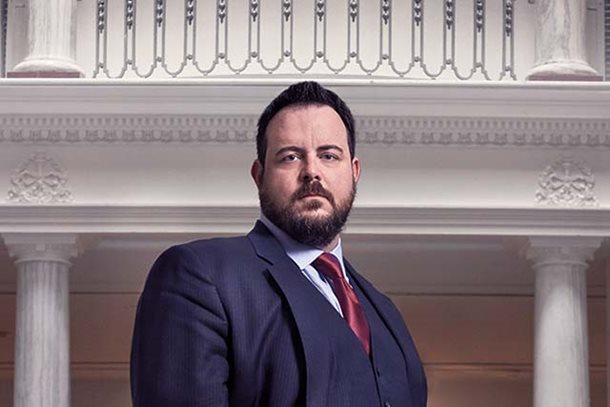Connexion
Dernières nouvelles
PC Justice Critic Calling for Review of Staffing Levels in Crown Attorney’s Office
The Newfoundland and Labrador Crown Attorneys Association says some prosecutors have up to 200 cases on their plate, and sometimes work until early morning preparing for a trial. PC Justice Critic Helen Conway Ottenheimer believes that Crown attorneys are too important a player in the justice system to allow shortcomings in staffing to impact their ability to always be at the top of their game.
[ ...Suite ]Date de parution : 2024-08-12
Crown Attorneys Plead For More Staff to Match Rising Crime Rates
Shawn Patten, president of the Newfoundland and Labrador Crown Attorneys Association,... notes while crime is increasing, the number of prosecutors has not been adjusted to deal with it. He’s calling on government to correct the imbalance in the name of public safety.
[ ...Suite ]Date de parution : 2024-08-03
N.B. reaches tentative deal with Crown prosecutors union
The New Brunswick government says it has struck a tentative collective agreement with the union representing the province’s Crown prosecutors. In a news release, the province said the details of the agreement will be confidential until it is ratified.
[ ...Suite ]Date de parution : 2024-07-17
Crown prosecutors vote 99% in favour of strike action amid labour shortage, system 'crisis'
New Brunswick Crown prosecutors and family court Crown counsel have voted 99 per cent in favour of strike action. They have been in contract talks with the provincial government for more than a year and warn the "crisis" facing the criminal justice system is growing, due to recruitment and retention problems.
[ ...Suite ]Date de parution : 2024-05-28
Pénurie de procureurs : vers l’abandon de poursuites
Les procureurs de la Couronne craignent le pire devant la crise qui ralentit le fonctionnement du système de justice pénale au Nouveau-Brunswick. Des appels à l’aide ont été lancés depuis deux semaines. Me Yves Duguay, vice-président de l’Association des procureurs de la Couronne du Nouveau-Brunswick et procureur à Bathurst, avoue que ça fait un moment que la situation est inquiétante.
[ ...Suite ]Date de parution : 2024-03-27
B.C. prosecutors' association raises security concerns about Vancouver courthouse following assault
The association that represents B.C.’s roughly 450 Crown prosecutors is raising safety concerns around an East Vancouver courthouse after a member was allegedly assaulted outside last week. "We’re reeling, this has really shaken us to the core to have one of our own attacked right here,” said BCCCA president Adam Dalrymple.
[ ...Suite ]Date de parution : 2024-02-05
<-- Retour au nouvelles archivées
Applying the Jordan framework: Are courts placing too much of the burden on the defence?
18-12-2018

In R v. Jordan, the Supreme Court put a hard cap on the duration of criminal trials — sending a thrill of panic through the justice system in the process. The ruling is roughly two and a half years old now. Time for the training wheels to come off.
A quick recap: In July 2016, in a 5-4 split decision, the Supreme Court ruled that the 49.5 months it took to complete accused drug trafficker Barrett Jordan’s trial constituted a violation of his Section 11 b Charter right. The justices set presumptive limits on the length of trials going forward: 18 months in provincial court, 30 months in superior court.
Result: multiple stays, some in high-profile cases involving violent crimes — even murder. Wary of the risk of giving lawyers an incentive to slow down trials, the SCC justices added caveats to R v. Jordan. When deciding whether a trial blew past the Jordan limit, judges must include institutional delays that can’t be blamed on the Crown. But delays caused, or waived, by the defence do not count toward the Jordan ceiling.
Usually, courts’ interpretations of Charter rights take effect instantly. But here the SCC made an exception, allowing for “transitional” rules to cover cases where the accused was charged before R v. Jordan landed. The trial conduct of Crown and defence prior to the ruling was to be judged according to pre-Jordan rules, while everything that happened afterward was to obey the new standard — a hybrid test to keep the justice system from imploding.
Now, that backlog of pre-Jordan charges has been largely cleared — the transitional period is over. But Crown and defence lawyers alike report that trial times aren’t speeding up; statistics cited in a recent Law Times article show that in the Ontario Court of Justice, average times to disposition and the number of court appearances have not diminished since Jordan. If the SCC intended the ruling as a salutary shock to the system, it didn’t work.
So what happens now? Since Jordan doesn’t seem to have led to the sort of government investments and policy shifts that could guarantee timely trials, judges and lawyers are being left to work things out on their own.
Drew Yewchuk, a staff lawyer with the University of Calgary’s Public Interest Law Clinic, says he can see a trend emerging already — of courts holding defence counsel responsible for questionable delays that violate the Jordan limits, permitting them to avoid ordering stays.
“Obviously the courts are going to look at ways of speeding things up, and my read of some recent decisions tells me they’re looking mainly at defence counsel,” says Yewchuk.
Yewchuk points to two recent decisions out of Alberta touching on Jordan. The first, R v. Carter, involved an accused charged with criminal harassment along with two other individuals. The total case delay was 28 months, shy of the 30-month ceiling for cases going before a superior court. The defence still argued the delay was unreasonable.
The Queen’s Bench justice disagreed, saying that to prove a Jordan breach under the 30-month ceiling, the defence “must establish two things: 1) it took meaningful steps that demonstrate a sustained effort to expedite the proceedings; and 2) the case took markedly longer than it reasonably should have.”
The fact that the defence tried, and failed, to have its client’s case severed from those of his co-accused to save time wasn’t good enough, said the court: “… it is important that an accused raise concerns about unreasonable delay in a meaningful way very early in the proceedings.”
In R v. Tetreault, meanwhile, the Court of Appeal ended up blaming the defendant’s “cavalier and disorganized approach to the advancement of his Charter arguments” for pushing the total court time over the Jordan limit. And while it acknowledged the defence had never actually waived the delay, it concluded defence counsel “had ‘acted’ by taking the lead and offering trial dates … Given his finding that counsel did not express concern about delay … there was an evidentiary basis for the trial judge’s finding that was not refuted.”
Taken together, says Yewchuk, the cases suggest courts imposing an extra burden on the defence as an ‘escape hatch’ to evade Jordan stays.
To Eric Gottardi (pictured above), one of two lawyers who represented Jordan before the Supreme Court, the reason is obvious: the “power imbalance between Crown and defence.”
“The Crown has certain constitutional protections,” he says. “A judge may feel that the Crown has overloaded a certain case, put too many defendants together in the same trial. But the Crown enjoys ‘prosecutorial discretion’ and the defence does not.
“So defence counsel is much easier to push around, so to speak.”
Defence lawyers also face another disadvantage their Crown competitors don’t share: they have clients. Yewchuk argues that “occasionally doing things in an inefficient or clumsy manner is just a part of defence work,” because an accused tends to know next to nothing about how trials work.
“That means the defence can’t always work in a really efficient way,” he says.
Not everyone buys the argument that defence teams are being singled out. Rick Woodburn, president of the Canadian Association of Crown Counsel, says the SCC was clear in R v. Jordan that meeting the deadlines is a burden shared by defence and Crown. “The pressure is on the entire justice system to avoid unnecessary delays,” he says.
But if this is a real trend — if courts really are starting to impose heavier burdens on defence counsel in order to evade Jordan stays — then the biggest loser could be the court system itself.
Jordan Gold of Robichaud Law in Toronto points out that the R v. Jordan decision was widely viewed as a message of warning for governments — to fund the court system adequately or risk seeing high-profile cases hit a wall. Pushing the burden onto the defence, he says, would prove correct those who took a gloomy view of the post-Jordan landscape by freeing governments of their political duty to solve the underlying dysfunction.
“The pessimists post-Jordan were probably saying that no matter what happened, the courts would be extremely reluctant to stay, say, a murder charge — that they’d be looking for an escape route,” says Gold.
“In the absence of those new resources, blaming the defence does offer that escape hatch. The trouble is, it doesn’t put the pressure on governments to face up to the problem.”

